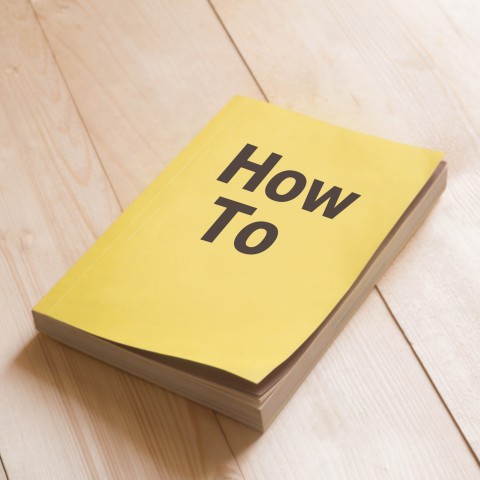
Are you having trouble making the leap from the beginner to the intermediate level? It can be challenging to go from using simple structures in the present tense to figuring out the more difficult structures you need for expressing complex ideas or subtle feelings.
Don’t worry; help is near. Having access to an extensive set of intermediate Dutch phrases may be the final push that will help you make this leap. And once you’re on the other side, you’ll find a lot of satisfaction in improving your skills and tackling the more challenging aspects of the language.
In this article, we’ll have a look at some of the most useful intermediate Dutch phrases and sentence structures. You’ll get practical phrases for a wide variety of situations: talking about past events, making plans for the future, explaining your reasons, and more.
Let’s dive in.

Let’s master those intermediate Dutch phrases!
 Table of Contents
Table of Contents
- Talking About Past Events
- Making and Changing Plans
- Explaining Your Reasons
- Making Recommendations and Complaints
- Reaction Phrases for Everyday Conversations
- Dutch Etiquette Phrases for Social and Business Settings
- How DutchPod101 Can Help You Learn More Dutch
1. Talking About Past Events
When you’re at a beginner level, chances are that you will only use the present tense. But as you bridge the gap toward becoming an intermediate Dutch student, you’ll need to learn how to use the Dutch past tense to talk about past events and share your experiences. Let’s have a look at some useful intermediate Dutch phrases for talking about things that happened in the past.
| We hebben een geweldige tijd gehad. |
| We had a great time. |
| Literally: We have had a great time. |
| We hebben genoten van het feest gisteravond. |
| We enjoyed the party last night. |
| Dat was de ergste dag van mijn leven. |
| That was the worst day of my life. |
| Ik werk hier nu drie jaar. |
| I have been working here for three years now. |
| Literally: I work here three years now. This Dutch sentence uses the present tense because we’re talking about something that is still ongoing. |
| Vorig jaar reisde ik naar Argentinië. |
| Last year, I traveled to Argentina. |
| Ik had vroeger een hond die Billie heette. |
| I used to have a dog named Billie. |
- ➜ Do you want a quick overview of Dutch tenses? Then have a look at our Beginner’s Guide to Dutch Verb Conjugation. It’s available for free on DutchPod101.com.
2. Making and Changing Plans
Now that we have a better grasp of the past, let’s go to the future. For this, you’ll need to be able to manage the Dutch future tense. As you will gather from the following Dutch phrases for the intermediate level, there are many different ways to use this tense, and they’re all quite simple—so give them a go! Usually, mentioning the date of the event will be enough for the other person to understand you’re talking about the future; from that point on, whether you use the present or future tense is a matter of preference.
Be aware: The Dutch love to plan, so you may have to make plans in advance and avoid canceling at the last minute (as this is viewed as rude).

How do you make and change plans in Dutch? Let’s have a look!
| Ik ben volgende week beschikbaar. |
| I am available next week. |
| Heb je dit weekend tijd? |
| Do you have time this weekend? |
| Wil je vanavond pizza eten? |
| Do you want to eat pizza tonight? |
| Mag ik mijn vriend/vriendin meenemen? |
| Can I bring my boyfriend/girlfriend? |
| Kunnen we het naar volgende week verplaatsen? |
| Can we move it to next week? |
| Zouden we een nieuwe afspraak kunnen maken? |
| Could we make a new appointment? |
| We hebben het er later over in onze bespreking. |
| We will talk about it later in our meeting. |
- ➜ Do you want to learn more useful phrases for talking about your plans? Then have a look at our free vocabulary list Talking About Your Plans, which comes with audio recordings so you can practice your pronunciation.
3. Explaining Your Reasons
Another essential set of Dutch phrases for the intermediate level consists of those for explaining the reasons behind your actions. Describing your reasons is quite straightforward in Dutch; it only takes a few key words and structures to start talking about causes and consequences. See what we mean by taking a look at the useful intermediate Dutch phrases we’ve listed below.
| Ik eet geen eieren of vis want ik ben allergisch. |
| I don’t eat eggs or fish because I’m allergic. |
| Ik hou van deze muziek omdat ik er graag op dans. |
| I like this music because I like to dance to it. |
| Ik ben een beetje dronken, dus ik loop terug naar huis. |
| I am a bit drunk, so I’ll walk back home. |
| Omdat ik uitgeput was, sliep ik tot in de middag. |
| Because I was exhausted, I slept until noon. |
| Ik praat zachtjes want ik wil haar niet wakker maken. |
| I’m speaking softly because I don’t want to wake her up. |
4. Making Recommendations and Complaints
One way to gain a deeper insight and understanding of people is to share our opinions and learn from each other’s experiences. Making recommendations or complaints is a great way to bond with people. Whether you want to recommend a great restaurant to your friends or discourage them from reading a boring book, the following intermediate Dutch phrases will help you get the message across.
| Je moet dit proberen. Het is de beste koffie die ik ooit heb gehad. |
| You should try this. It’s the best coffee I’ve ever had. |
| Dit is mijn favoriete restaurant. |
| This is my favorite restaurant. |
| Dit is de beste pizzeria van de stad. |
| This is the best pizza place in town. |
| Literally: This is the best pizza place of the city. |
| Ik heb echt genoten van deze film. Ik zou hem graag nog een keer zien. |
| I really enjoyed this movie. I would like to see it again. |
| Ik zou dit boek niet aanraden, ik vond het erg saai. |
| I would not recommend this book; I found it very boring. |
- ➜ Do you want to learn more? Have a look at our vocabulary list Making Complaints in Dutch, which comes with useful audio recordings for pronunciation practice.
5. Reaction Phrases for Everyday Conversations

Get ready for everyday Dutch conversations by learning these useful intermediate Dutch phrases!
Are you interested in improving your Dutch conversation skills? In this section, we’ll teach you some short intermediate-level phrases for reacting to statements and expressing emotions like enthusiasm, curiosity, and disbelief. Being able to react fully (rather than just saying yes or no) is a great step forward in becoming more fluent in Dutch.
1 – Great!
A:
Ik vind de serie die je me hebt aangeraden heel erg leuk.
“I really love the series you recommended to me.”
B:
Wat leuk, ik ben blij dat je het leuk vindt!
“That’s great; I’m glad you like it!”
2 – Sorry.
A:
Ik heb een notenallergie.
“I have a nut allergy.”
B:
Oh, sorry, dat wist ik niet.
“Oh, sorry, I didn’t know.”
3 – I can’t believe it.
A:
Ik hou niet van kaas.
“I don’t like cheese.”
B:
Echt waar?
“Really?” [Formal/Casual]
B:
Meen je het?
“Are you serious?” [Formal/Casual]
B:
Maak je een grapje?
“Are you making a joke?” [Casual]
4 – That’s a shame.
A:
Ik kan vanavond niet komen.
“I can’t come tonight.”
B:
Ah, dat is jammer.
“Oh, that’s a shame.” [Formal/Casual]
B:
Ah, dat is balen!
“Ah, that sucks!” [Casual]
5 – Keep me posted!
A:
Ik weet nog niet of ik vanavond kan komen.
“I don’t know if I can come tonight.”
B:
Oké, hou me op de hoogte!
“Okay, keep me posted!”
6 – Thanks for coming!
A:
We hebben genoten van het feest gisteravond.
“We enjoyed the party last night.”
B:
Wat fijn, bedankt voor het komen!
“How nice, thanks for coming!”
- ➜ Do you need to improve your Dutch speaking skills? Have a look at our vocabulary list How to Improve Your Speaking Skills for some useful tips. You can also see our Using Small Talk Phrases list.
6. Dutch Etiquette Phrases for Social and Business Settings

What Dutch etiquette rules do you already know?
Last but not least, to really become an intermediate-level Dutch speaker, you should also know some Dutch etiquette phrases for social and business settings. Even though the Dutch aren’t the most polite people in the world, there is more to Dutch courtesy than just saying alstublieft (“please”) and bedankt (“thank you”). We do appreciate some etiquette, especially in the Dutch business culture. So, let’s have a look at some useful Dutch phrases for intermediate-level students who want to make a great impression in social and business settings.
| Doe alsof je thuis bent. |
| Make yourself at home. |
| Literally: Do as if you are at home. |
| Laat het me weten als je vragen hebt. [Casual] | Laat het me weten als u vragen heeft. [Formal] |
| Please let me know if you have questions. | |
| Goede reis! |
| Have a good trip! |
| Ik kijk er naar uit om van je te horen. [Casual] | Ik kijk er naar uit van u te horen. [Formal] |
| I look forward to hearing from you. | |
| Leuk je te ontmoeten. [Casual] | Aangenaam kennis te maken. [Formal] |
| Nice to meet you. | |
| Sorry dat ik je stoor. [Casual] | Sorry dat ik u stoor. [Formal] |
| I’m sorry to disturb you. | |
| Literally: Sorry to disturb you. | |
| Gezondheid. |
| Bless you. |
| Literally: Health. This is used when someone sneezes. When someone sneezes three times, some people may add morgen mooi weer (“good weather tomorrow”), but it’s old-fashioned and mostly used as a joke. |
- ➜ Would you like to learn more about Dutch etiquette? You’re in luck! We have a complete guide [link] on what’s polite and what’s not in the Netherlands. It’s available for free on DutchPod101.com.
7. How DutchPod101 Can Help You Learn More Dutch
In this guide, you have learned more than thirty useful intermediate Dutch phrases covering different aspects of our daily lives. As a true intermediate Dutch speaker, you can now talk about past events, make and change plans, explain your reasons, make recommendations or complaints, react to everyday conversations, and even use those tricky Dutch etiquette phrases for social and business settings.
Are there any other types of Dutch phrases for the intermediate level you would like to learn? Or some useful intermediate Dutch phrases on another topic? Feel free to share with us in the comments below!
Try to really practice all of the intermediate Dutch phrases from our list by following these steps:
- Read the sentence carefully and see if you can understand it.
- Try and translate it yourself with the words and grammar that you already know.
- Compare your results to the given translation (and to its literal translation, when needed).
- Once you understand the words and the grammatical structure, you can make some changes to the sentence to make it more personal or applicable to other situations.
- Once you’re comfortable enough, you could even try to rephrase it completely or make it more complex.

Yes, you are ready to master the Dutch intermediate level!
You can start mastering these Dutch phrases for intermediate learners with the help of DutchPod101.com. We offer audio and video lessons, vocabulary lists with audio recordings, and other free resources to boost your studies. With DutchPod101, you can really keep your Dutch learning fun and diverse.
Would you like some special attention? Remember that we also offer a Premium PLUS service with personal 1-on-1 coaching: MyTeacher. Let your private teacher help you with every aspect of the Dutch language, from the pronunciation of common phrases to the expansion of your intermediate Dutch vocabulary. You’ll receive personalized exercises, constructive feedback, and interactive assignments.
What are you waiting for? Sign up today!










